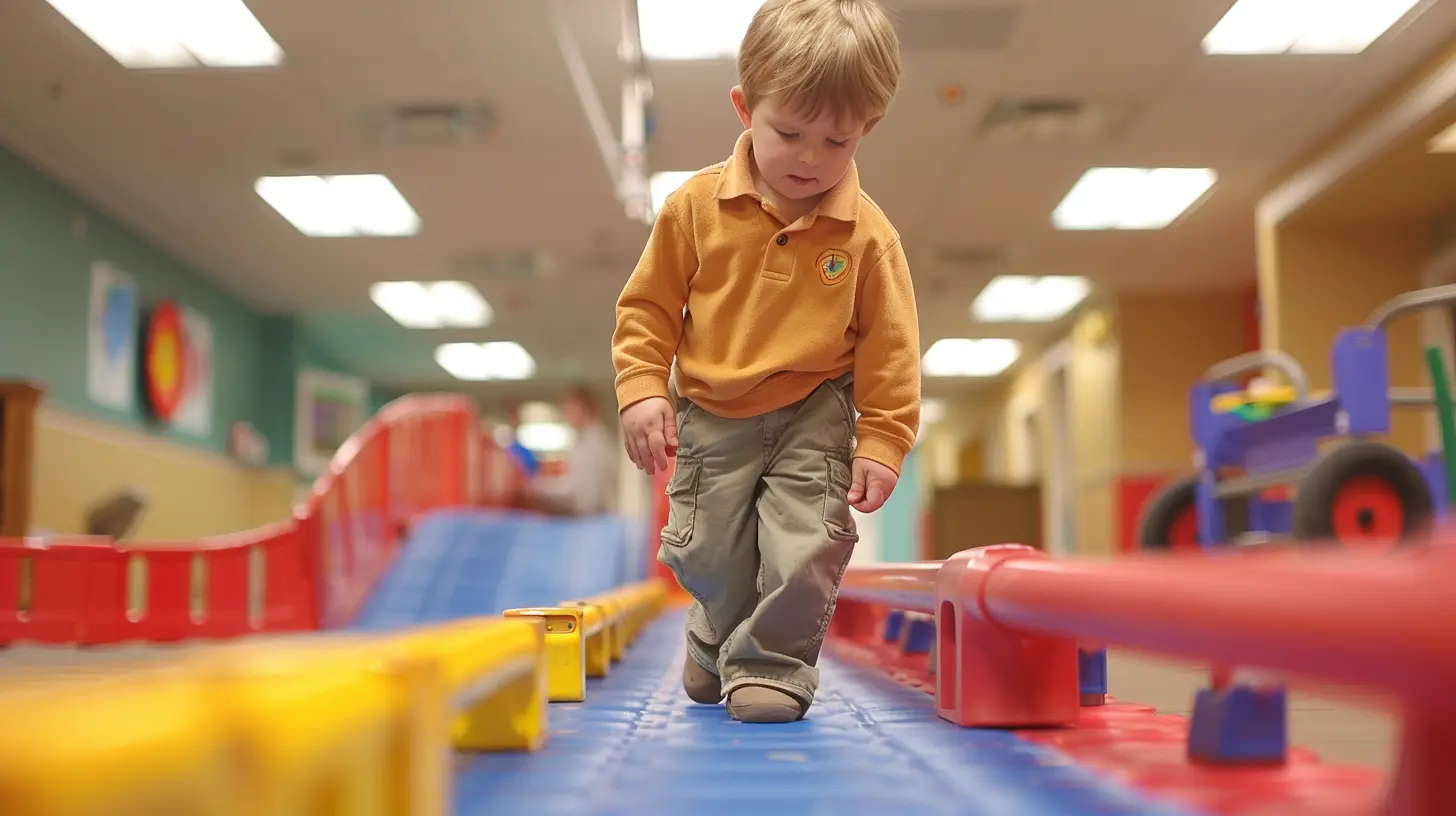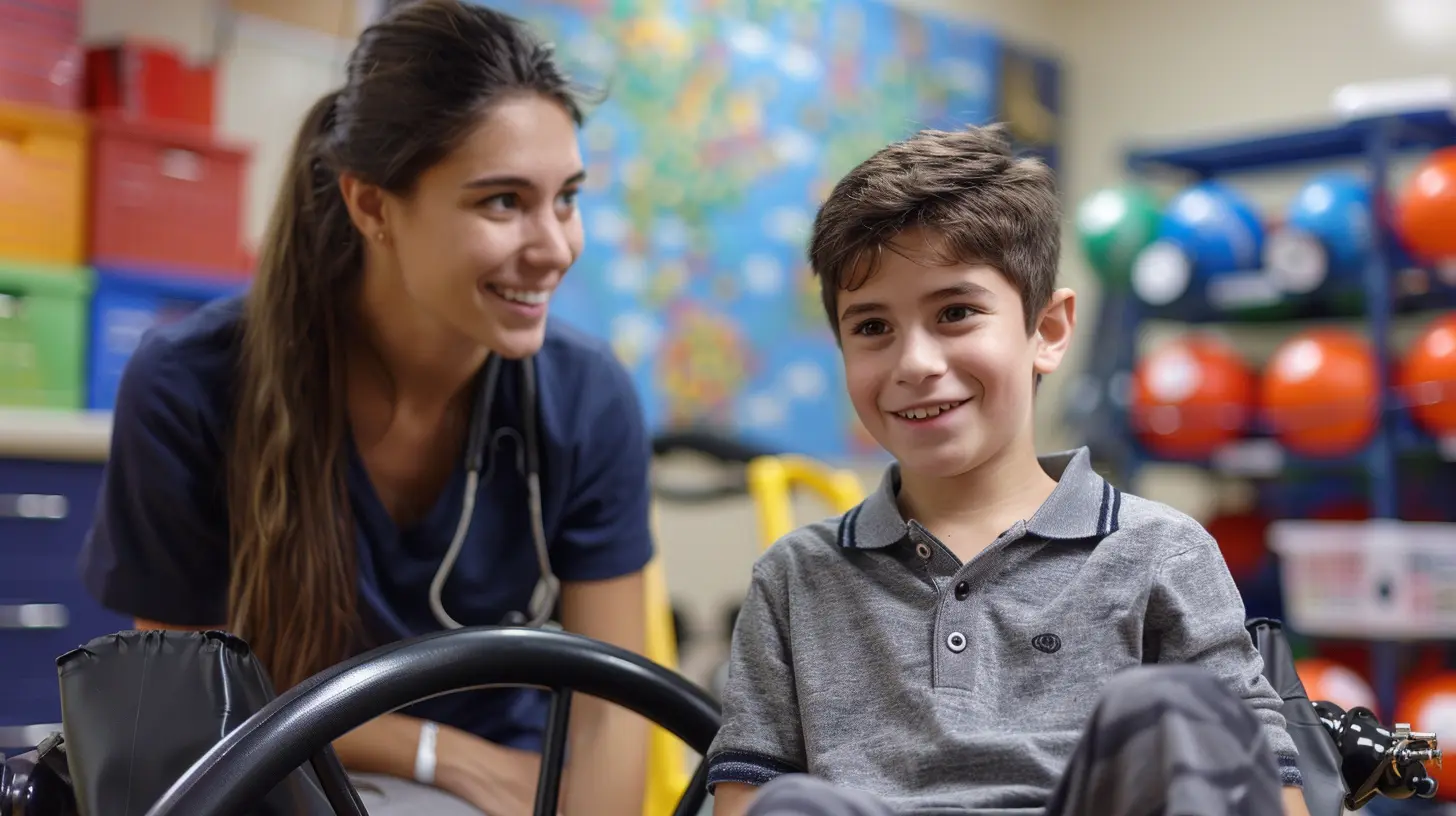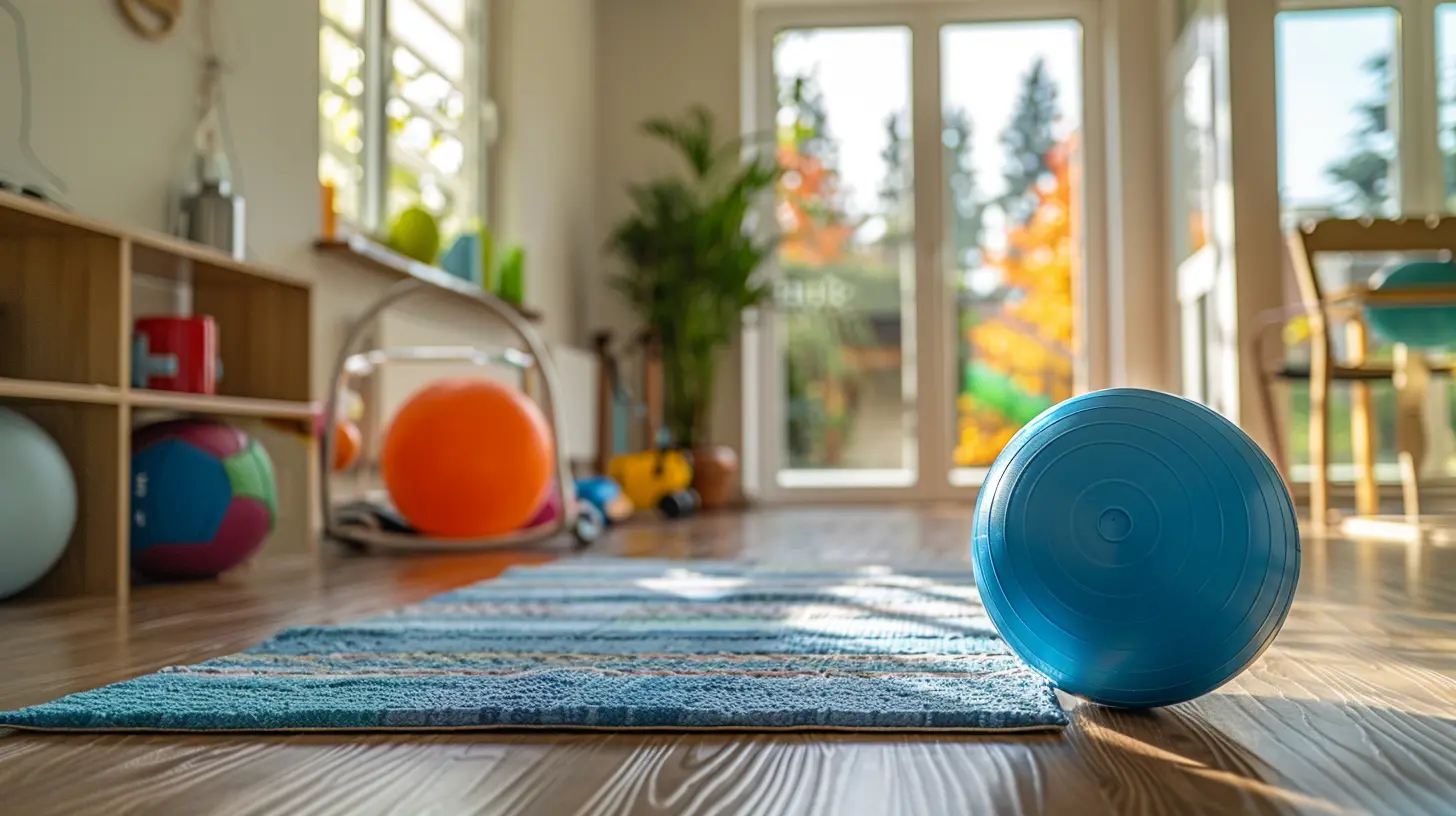The Role of Physical Therapy in Your Child’s Development
7 October 2025
Parenting is a beautiful journey filled with exciting milestones—your child’s first smile, rolling over, those adorable first steps! But sometimes, little ones need a bit of extra help to reach these developmental goals. That’s where physical therapy comes into play.
If you've ever wondered how physical therapy (PT) can benefit your child, you're in the right place! Whether it's improving coordination, strengthening muscles, or overcoming developmental delays, PT can be a game-changer. Let's dive in and see how it works! 
What Is Physical Therapy for Kids?
Physical therapy isn't just for athletes or people recovering from injuries—it plays a crucial role in a child’s overall growth and mobility. Pediatric physical therapists specialize in working with children of all ages, from infants to teenagers, helping them develop strength, flexibility, balance, and coordination.These therapists use fun, engaging activities (think obstacle courses, ball games, and playful stretching exercises) to encourage natural movement while addressing specific concerns. It's like a workout session, but way more fun! 
Signs Your Child Might Need Physical Therapy
As a parent, you know your kiddo best. If you notice any of these signs, it might be time to chat with a specialist:For Babies (0-12 Months)
✅ Difficulty lifting or turning their head✅ Stiff or floppy muscles
✅ Delayed rolling, crawling, or sitting up
✅ Preferring one side of the body over the other
For Toddlers and Older Kids
✅ Trouble walking, frequent stumbling or toe-walking✅ Difficulty keeping up with peers during playtime
✅ Poor posture or coordination issues
✅ Avoiding physical activities like climbing, running, or jumping
✅ Pain when moving around
If any of these sound familiar, don’t panic! Many children experience temporary delays or challenges, and early intervention makes a world of difference. 
How Physical Therapy Helps in Child Development
So how exactly does PT work its magic? Here’s a closer look at the benefits.1. Boosts Strength and Coordination
Every child loves to run, jump, and play! But if muscle weakness or coordination issues are getting in the way, a physical therapist can introduce fun exercises to strengthen muscles and improve motor skills. Over time, this helps kids move with confidence.2. Improves Balance and Posture
Ever notice your child slouching or struggling to stand upright? PT can help improve core strength and posture, which not only benefits movement but also supports their overall health. Good posture can prevent back pain and injuries later in life!3. Encourages Independence
Mobility challenges can sometimes make kids feel left out of activities with their peers. Through PT, children gain the skills they need to become more independent and self-assured, allowing them to participate fully in school, sports, and daily play.4. Supports Recovery from Injuries or Conditions
Kids are naturally energetic (and sometimes fearless!). Injuries, surgeries, or conditions like cerebral palsy or scoliosis can slow them down. Physical therapy helps these little warriors regain movement and function safely.5. Enhances Cognitive and Sensory Development
Believe it or not, movement plays a vital role in brain development! Physical activities stimulate the nervous system, enhancing a child’s ability to process sensory input and improve cognitive skills. The more a child moves, the more their brain thrives!
What to Expect in a Physical Therapy Session
The thought of starting therapy might feel overwhelming, but trust me—it's not as intimidating as it sounds. Picture a playroom filled with colorful toys, soft mats, and exciting activities!Here's what typically happens during a session:
🛠 Initial Assessment
The physical therapist will observe how your child moves—how they sit, stand, walk, and play. This helps them understand your child’s strengths and areas that could use improvement.🎯 Goal Setting
Based on the assessment, a personalized therapy plan is created. The focus might be on improving muscle tone, balance, coordination, or flexibility, depending on your child's needs.🎈 Fun Therapy Exercises
Forget boring routines—pediatric therapists incorporate games, toys, and engaging activities to make therapy enjoyable! From obstacle courses to playful stretching, your child will have a blast while improving mobility.📈 Progress Tracking
Therapists will track improvements over time, adjusting exercises as needed. They'll also provide at-home exercises so parents can continue supporting their child’s progress.Tips for Parents: Supporting Your Child’s Journey
Parent participation is key to success! Here’s how you can help:1. Encourage Playtime
The best way to reinforce therapy is through play! Activities like crawling races, hopscotch, and playing with balls can naturally strengthen muscles and coordination.2. Stay Consistent with Exercises
Therapists often recommend at-home exercises—make them a fun family activity! Try turning exercises into a game or challenge to keep your child excited.3. Be Their Biggest Cheerleader
Physical therapy takes time, and progress might be slow at first. Stay positive, patient, and encouraging—your little one will thrive with love and support.4. Communicate with the Therapist
Ask questions, share concerns, and stay informed about your child’s progress. A strong parent-therapist partnership ensures your child receives the best care possible.The Long-Term Impact of Physical Therapy
Physical therapy isn’t just about fixing immediate issues—it sets the stage for a healthier, more active future! Kids who receive therapy often:✔ Develop better coordination and balance
✔ Gain confidence in movement
✔ Avoid long-term posture or mobility issues
✔ Engage in sports and activities without fear
Every child deserves the freedom to move, explore, and enjoy life without limitations. If physical therapy can give them that, then it’s 100% worth it!
Final Thoughts
Watching your child grow and overcome obstacles is one of the greatest joys of parenting. If physical therapy can help them reach their full potential, why wait? A little support today can make a huge difference in their future.So if you’re wondering whether your child could benefit from PT, trust your instincts and have a chat with a specialist. After all, every step they take—big or small—is a step toward a brighter, stronger future!
all images in this post were generated using AI tools
Category:
Special NeedsAuthor:

Steven McLain
Discussion
rate this article
1 comments
Jaxon Franklin
Because who needs superheroes when you have physical therapy to help your child conquer challenges, right?
October 10, 2025 at 3:11 AM

Steven McLain
Absolutely! Physical therapy empowers children to overcome challenges and develop their abilities, making it a vital support in their journey.


